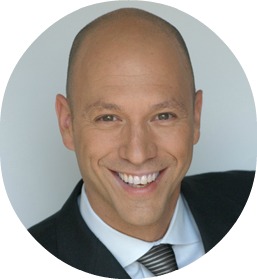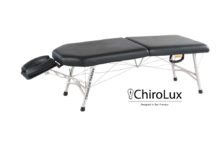 Historically in the chiropractic profession the word philosophy has created a lot of angst and acrimony. For many, the orientation is that being philosophically-based and being scientifically-based is mutually exclusive. This of course is beyond absurd and anyone who would draw such a conclusion is ignorant to the meaning of terms. There is no such thing as a human being that does not have a philosophy. The only question is the level and extent that their philosophy is conscious to them. I one time was in a public argument with a member of a state Board of chiropractic examiners who made the misguided statement that, “Chiropractors should not be permitted to get continuing education credit in the subject of philosophy.” I looked at this being incredulously and asked, “Do you even know what the word philosophy means? Can you tell me what the branches of philosophy are and explain to me branch by branch how they might apply to health care?” He looked a bit dumbfounded. And then I said to him, “Do you even realize what you’re proposing right now is a philosophical position?” A deer in the headlights.
Historically in the chiropractic profession the word philosophy has created a lot of angst and acrimony. For many, the orientation is that being philosophically-based and being scientifically-based is mutually exclusive. This of course is beyond absurd and anyone who would draw such a conclusion is ignorant to the meaning of terms. There is no such thing as a human being that does not have a philosophy. The only question is the level and extent that their philosophy is conscious to them. I one time was in a public argument with a member of a state Board of chiropractic examiners who made the misguided statement that, “Chiropractors should not be permitted to get continuing education credit in the subject of philosophy.” I looked at this being incredulously and asked, “Do you even know what the word philosophy means? Can you tell me what the branches of philosophy are and explain to me branch by branch how they might apply to health care?” He looked a bit dumbfounded. And then I said to him, “Do you even realize what you’re proposing right now is a philosophical position?” A deer in the headlights.
 One definition of philosophy is, “The rational investigation of truths and principles of being, knowledge, and conduct.” These investigations are applied to various branches of philosophy. The branches will be a subject of a subsequent article that I will write. What I want to address in this piece is the context for the very idea of philosophy. Most people view philosophy as some sort of abstract intellectual exercise that may be interesting but has no practical value in life. My position is that it is completely the opposite. I propose that philosophy is the most practical thing a human being can hope to embrace. I am talking about putting dollars in your pocket practical. How so?
One definition of philosophy is, “The rational investigation of truths and principles of being, knowledge, and conduct.” These investigations are applied to various branches of philosophy. The branches will be a subject of a subsequent article that I will write. What I want to address in this piece is the context for the very idea of philosophy. Most people view philosophy as some sort of abstract intellectual exercise that may be interesting but has no practical value in life. My position is that it is completely the opposite. I propose that philosophy is the most practical thing a human being can hope to embrace. I am talking about putting dollars in your pocket practical. How so?
Whether we are aware of it or not we subscribe to certain principles and orientations that guide our actions and decision-making. The famous author and psychotherapist, Dr. Nathaniel Branden wrote an entire book on a subject relative to this called, “The Art of Living Consciously”. In essence, the more conscious we are of our values, the more aligned our actions will be toward those values. If you don’t live your values consciously, you are set up for a world of pain and disappointment.
One of the most important philosophical statements I’ve ever learned comes from the philosopher Ayn Rand where she asserted that contradictions lead to destruction and the amount of destruction will be relative to the level of the contradiction. We live in a universe of causality. When you have contradictions it is a sign that you are operating from a faulty premise. And if this is not solved, it will lead to destruction. So what am I getting at here?
You will rise in life to the degree that your contradictions will allow. Nobody is perfect. Nobody is 100% contradiction free. However, growth and expansion and success come from recognizing contradictions, removing them, and evolving to the next level of life. So how does this make philosophy practical? It makes philosophy practical because it is through our philosophical assessments that we can identify contradictions and remove them. And when we do, our businesses grow, our relationships grow, and our bank accounts grow. This is why I have concluded that philosophy is most practical thing a human being can hope to embrace.
Here’s where I’d like to make the distinction between ‘abstract philosophy’ and ‘practical philosophy’. I characterize abstract philosophy as that more academic mode of exploring the general nature of reality and being committed to intellectual investigation of truths and principles. And I would contend that people who engage in a career in philosophy who are successful in bringing ideas and context relative to this into the world add a lot of value to the world.
 However, I would like to assert that anyone can become a ‘practical philosopher’. And practical philosophers use philosophy as a tool for their own personal development and success. There is still a learning curve in understanding the branches of philosophy and how to apply them to your life and still further, to be able to check premises and look for and identify contradictions. So becoming a practical philosopher does require some effort, but I believe the payoff for that effort is extraordinary and worthwhile.
However, I would like to assert that anyone can become a ‘practical philosopher’. And practical philosophers use philosophy as a tool for their own personal development and success. There is still a learning curve in understanding the branches of philosophy and how to apply them to your life and still further, to be able to check premises and look for and identify contradictions. So becoming a practical philosopher does require some effort, but I believe the payoff for that effort is extraordinary and worthwhile.
I will contribute more articles on the subject that will be available in future posts. But for now, if you have at least just opened up your mind to the many positive possibilities that philosophy can bring you, we’re off to a great start.
Elevating Chiropractic,
Patrick Gentempo









